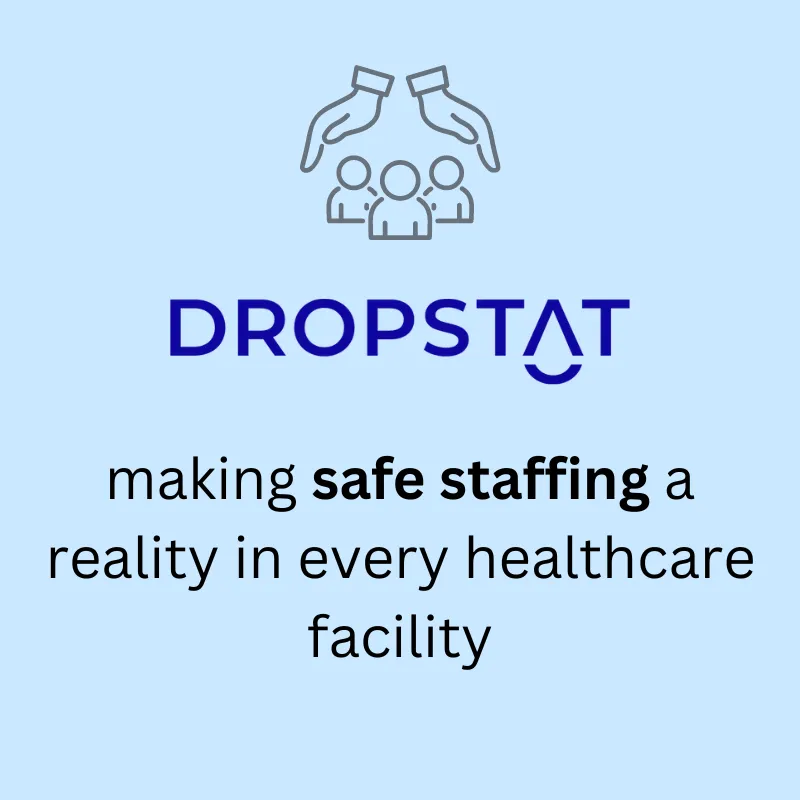Dropstat’s Clickable Guide to Types of Nursing Specialties
What is nursing informatics?
Nursing informatics (NI) is a nursing specialty that integrates nursing science, patient care, computer science, and information technology (IT). The American Nurses Association (ANA) defines nursing informatics as the nursing niche that identifies, defines, manages, and communicates data to bring “data, information, and knowledge” into actual nursing practice. The need for nursing informatics is becoming more recognized, with a 21% employment growth predicted for computer and information research scientists in general up until 2031.
Health services managers can employ informatics in nursing to help link up the newest IT systems with all healthcare staff, including the entire range of providers, for better communication and transparency. Since the outcomes of using informatics can affect and reach so many healthcare collaborators, it is essential to understand what is informatics in nursing and the contribution it makes to healthcare.
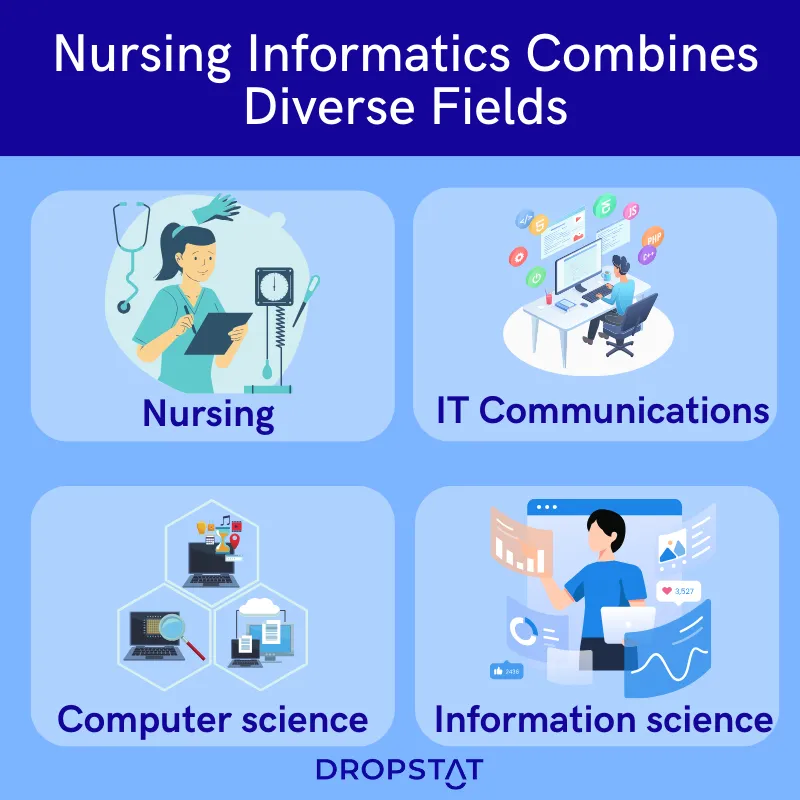
Why is nursing informatics important?
Nurse informaticists must be qualified as registered nurses so they understand what types of data nurses need. They are highly educated in IT and are expected to contribute to the development of technology in healthcare and can advocate for changes in policy.
Informatics nurses, therefore, can help registered nurses and healthcare organizations to provide better healthcare by:
- providing tools for reducing medication errors and adverse events,
- improving healthcare decision-making and communication to reduce delays,
- using healthcare data to reduce costs – freeing up funds for other needs.
Medical errors cost healthcare organizations almost $40 billion a year. Nursing informatics can reduce costs by preventing these errors. Additionally, US healthcare identified $370.9 billion in healthcare system waste due to a lack of system coordination. NIs can reduce wastage by increasing healthcare efficiency and accuracy.
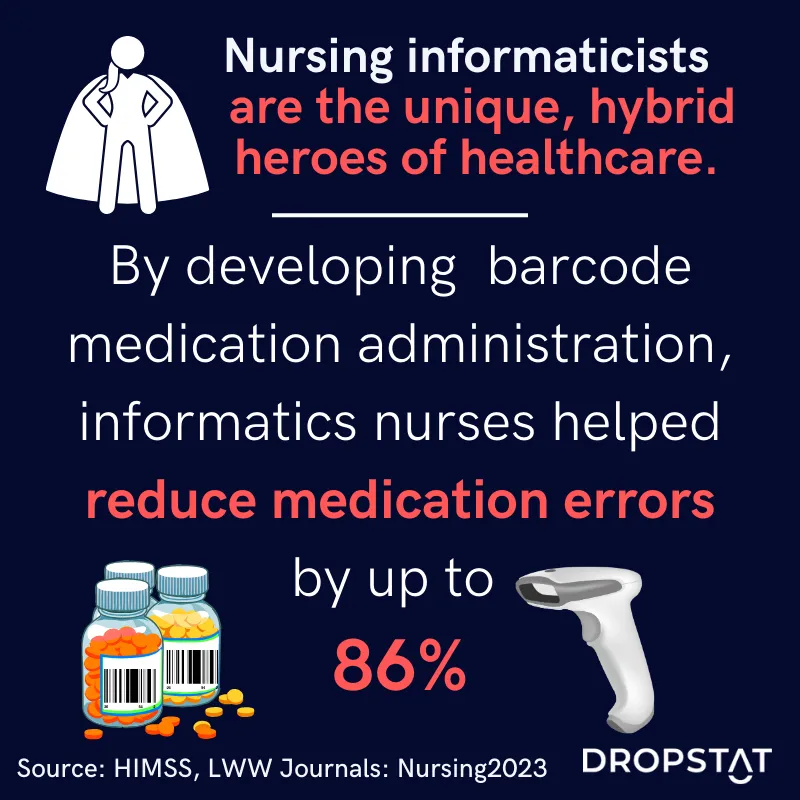
Roles and responsibilities of a nurse informaticist
According to the American Medical Informatics Association (AMIA), the role of informatics nurses is to promote patient care that is safe and efficient, timely and effective, and that puts the patient at the center – while making good healthcare available to everyone. The role of an informatics nurse specialist can include:
- Analyzing and determining healthcare needs
- Building up and upgrading the healthcare IT infrastructure
- Helping organizations implement and adopt new IT
- Assisting organizations in meeting legal requirements
- Acting as a bridge between nurses and IT professionals
- Applying preventative healthcare by tracking EHRs (Electronic Health Records)
- Educating existing and new nurses in the use of analytics
- Improving workflow using IT and communication technology
- Optimizing information management of healthcare data
- Researching topics relevant to nursing and healthcare informatics
- Ensuring greater accuracy in diagnoses and treatments
- Supporting the construction of an interoperable national data infrastructure
- Influencing healthcare policy to improve public health and standards of care
- Making better healthcare available and affordable to more people
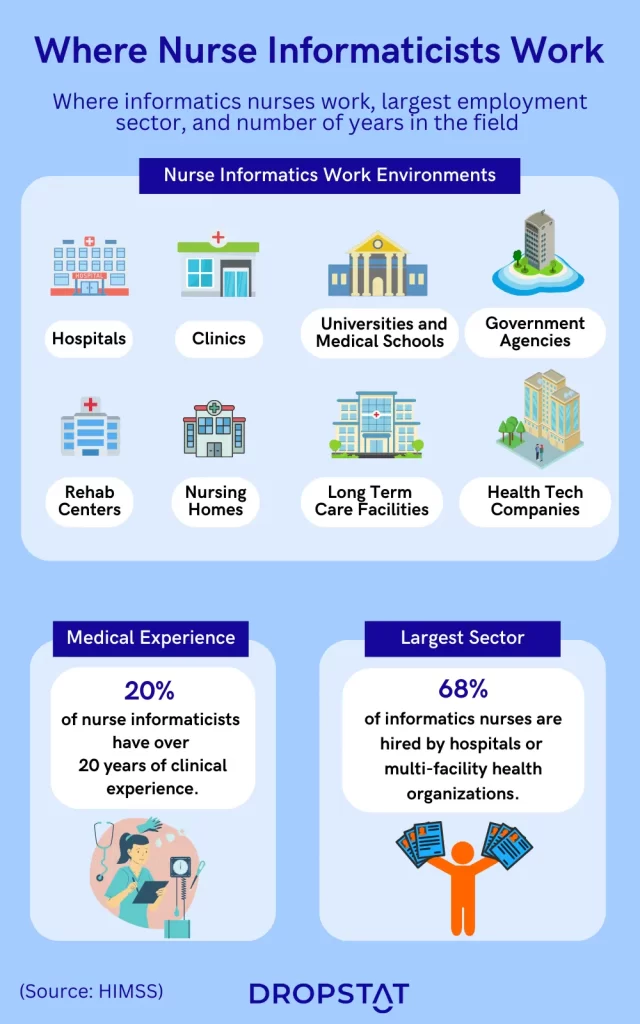
Where do nurse informatics professionals work?
Nursing informaticists can work in all types of healthcare environments, onsite or remotely. They are found in:
- Government agencies
- Hospitals
- Clinics
- Medical training establishments
- Nursing home chains
- Rehab centers, and
- Technology companies.
Nursing informatics education requirements
In order to advance, a nurse must invest in their career path as an informatics nurse. Education requirements vary with states and can include:
- A bachelor’s degree in nursing (BSN)
- An advanced-practice degree (is advisable) with a master’s program in nursing (MSN) or doctoral degree program (DNP)
- Further studies/courses, for example, in using statistics for evidence-based nursing, managing databases, leadership and project management, and security and privacy in informatics nursing.
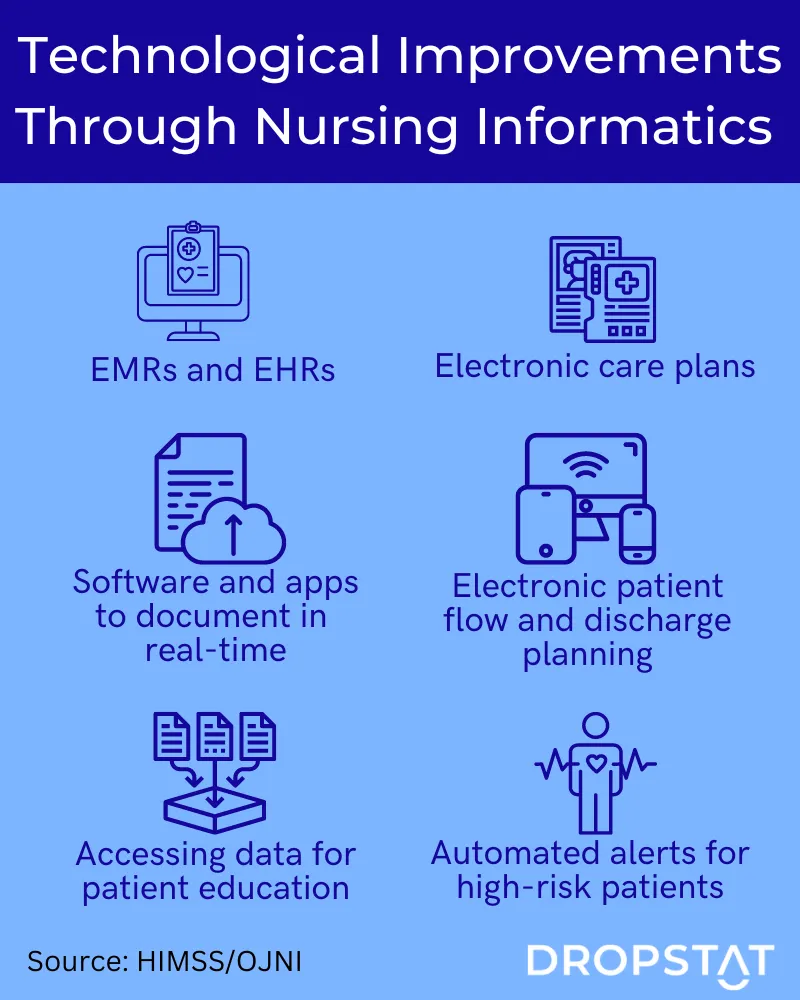
Nursing informatics salary
In order to qualify for nursing informatics programs, nurses may need to have a number of years of clinical practice; therefore, after qualifying, they usually command a higher salary.
Specifically, nurses who have American Nurses Credentialing Center (ANCC) informatics certification often command a higher salary.
85% of certified informatics nurses earn over $100,000 a year.
In 2023, according to Nurse.org, New Jersey nursing informaticists earned the most at $104,738 a year ($50.36/hr), followed by Wisconsin at $103,955 a year ($49.98/hr).
Nursing informaticists in West Virginia earned the lowest rate at $71,441 a year ($34.35/hr).
How will your healthcare facility benefit from hiring informatics nurses?
In healthcare, data drives decision-making in order to use evidence-based strategies and give patients the best value while reducing costs. Healthcare facilities need nursing informaticists to interpret and use this data best. Therefore, any healthcare facility that wants to keep ahead of technological changes has to hire an informatics nurse for their facility.
Often titled chief nursing informatics officer (CNOO), the nursing informaticist can bring many benefits to a healthcare facility. The field of nursing informatics allows an interprofessional healthcare team to:
- Introduce new healthcare technology to help nurses manage their daily tasks more easily
- Lead the adoption of communication and information technologies to boost communication
- Encourage the use of emerging technologies, such as the analytical sciences, to help healthcare providers practice interoperability in healthcare
- Help uplift the quality of patient care and improve patient outcomes to earn higher satisfaction scores for the facility.
- Improve efficiency in clinical processes, with electronic health information technology preventing unnecessary or overly expensive treatments and helping patients miss fewer appointments
- Ease the adoption of electronic medical records (EMRs), together with automated medicine prompts, to help prevent hazardous drug interactions
- Using barcode medication administration and electronic health records, for example, helps reduce egregious levels of medical errors, which recent studies have estimated account for 251,000 deaths annually in the United States.
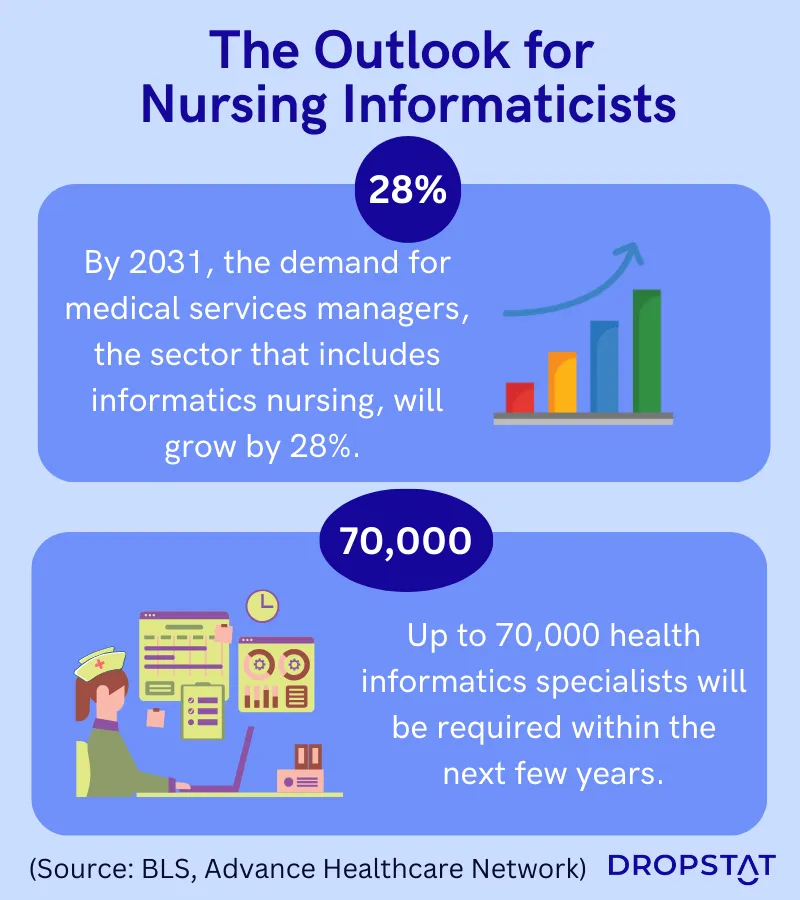
Conclusion
Supply of and demand for healthcare services are causing nursing informatics (NI) to become a dynamic force in healthcare. Information technology solutions open up more possibilities for the application and analysis of healthcare data. It drives data management decisions and, ultimately, healthcare decisions. Technology in nursing is multi-faceted, with many stakeholders, such as governing bodies, demanding accountability by improving patient safety in healthcare and driving down costs. In every case, nursing informatics plays an important role in nursing, in medical informatics, and in the advancement of healthcare altogether. Many healthcare practitioners find that healthcare costs go down as they invest in technology and adoption of nursing informatics.
With nursing informatics, a facility is often able to more successfully identify, collect, process, and manage data and information. Altogether, nurses’ informatics supports all aspects of the healthcare system, making it a safer place for patients and healthcare workers. Maybe hiring a nursing informatics specialist could drive change in your healthcare facility, too.
